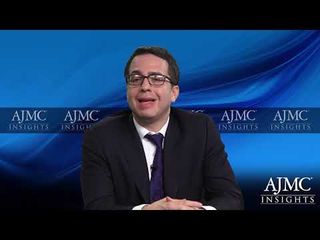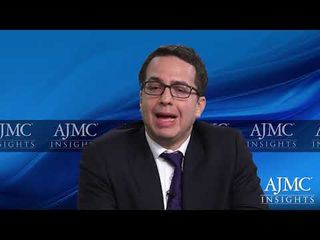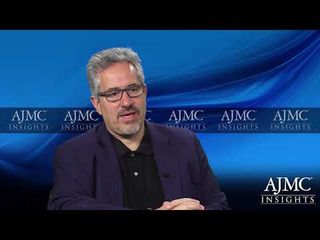
Clinical
Latest News
Latest Videos

CME Content
More News


Atopic dermatitis (AD) presents a significant humanistic burden on the quality of life among adult patients. Due to its public health impact and negative symptoms, the development for new and more effective treatments are necessary.

The Institute for Clinical and Economic Review (ICER) has released a draft version of their scoping document that will compare the clinical effectiveness and value of 2 chimeric antigen receptor (CAR)-T cell treatments being reviewed by the FDA.

Prescription opioids, intended for post-surgery utilization, often go unused and undisposed, leading to the nonmedical use of opioids that could have harmful consequences.

Patient-reported outcomes have demonstrated the impact of sarilumab as an effective management treatment for patients with rheumatoid arthritis.

Eczema is often assumed to be a childhood disease; however, the skin condition also affects adults and its prevalence is continually increasing. About half as many adults are affected by eczema than children, but it can negatively influence their quality of life.

A phase 3 study of a new treatment for chronic obstructive pulmonary disease (COPD) found no new safety issues, and the rates of adverse events and serious adverse events were minimal.

Vertex Pharmaceuticals recently announced positive data from phase 1 and 2 studies of 3 triple combination regimens in cystic fibrosis patients with one F508del mutation and one minimal function mutation (F508del/Min). These results are the first to present the potential of treating the underlying cause of those with difficult-to-treat cystic fibrosis.

The idea of quality care for rheumatoid arthritis (RA) often varies among the patient, clinician, and healthcare provider. However, there is a lack of representation of the patient’s perspective involved in the quality indicators that are the current standards for RA outcomes.

There’s a lot happening in clinical practice with immunotherapy treatments: expanded indications for nivolumab and ipilimumab, biomarkers to judge patient response to combinations, and developments with CAR-T.



There is an association between computed tomography (CT) detectable structural changes in the lungs of patients with chronic obstructive pulmonary disease (COPD) and changes in bacterial communities that influence alterations in the relationship between microbes and host cells, according to a new study published in PLOS One.

The approval follows a review of phase 2 results from CheckMate-142.

Enasidenib (Idhifa), developed by Celgene and Agios, has been granted FDA approval in tandem with a companion diagnostic test to detect IDH-2 mutations.

Patients often stop statin treatment following an adverse reaction; however, new research finds an association between continued statin prescriptions after an adverse reaction and a decreased incidence of death and cardiovascular events.

The FDA has expanded the indication of Bristol-Myers Squibb’s Yervoy (ipilimumab) to include the treatment of pediatric patients 12 years of age and older with unresectable or metastatic melanoma.

Recently, there have been efforts to reduce opioid use instead of increasing pain relief, and authors of a JAMA Viewpoint article argue that the movement to eliminate opioids for treating chronic pain is unnecessary.

Venetoclax (Venclexta), in combination with low dose cytarabine, has been granted a breakthrough therapy designation for use in elderly, treatment-naive patients with acute myeloid leukemia (AML) who cannot handle intensive chemotherapy.


A new study has analyzed data from randomized controlled trials in oncology that used surrogate endpoints and measured their relation with treatment effectiveness and patient survival in the real world.

Study used gene biomarker to identify which patients with colon cancer would not benefit from chemotherapy.

Patient-reported outcomes (PROs) can demonstrate the effects of a disease or treatment. By using patient questionnaires, the results can be analyzed to predict clinical outcomes in medical research for diseases, including multiple sclerosis (MS).

In recent years, biologic disease-modifying antirheumatic drugs (DMARDs) have advanced the treatment of rheumatoid arthritis (RA). However, poor adherence to treatments have increased the patient and society burden of the chronic disease.















